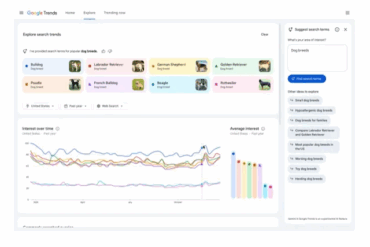By Mark Sweney.
Publishers struggle to make advertising revenue despite record digital readership
UK newspapers face losing £50m in digital revenues as advertisers use “blacklist” technology to block ads from appearing next to all stories that mention the coronavirus pandemic.
When advertisers run digital campaigns they use keyword blacklists – stocked with trigger words such as “attack” and “death” – that automatically stop ads running in potentially problematic stories that feature them. Publishers say that words related to the pandemic – such as coronavirus and Covid-19 – are appearing on blacklists across the industry.
This has meant that while national and regional newspaper publishers are gaining record numbers of digital readers seeking to keep up to date about the pandemic, publishers are struggling to make ad revenue from their interest.
Advertisers’ blacklist technology is also indiscriminate meaning that even positive or innocuous pieces such as those on the Joe Wicks YouTube PE phenomenon, family activities for the housebound, or articles recommending TV shows, films and books to read in isolation are also shorn of adverts.
“While we have seen a huge surge in demand from readers for trusted, accurate reporting, advertising ‘blacklists’ are preventing adverts from appearing alongside online stories with the word coronavirus in them,” said Tracy De Groose, executive chair of Newsworks, the campaigning body for the UK newspaper industry.
“If the pandemic lasts for another three months the total loss across our news brands is expected to be £50m, threatening our ability to fund the quality journalism that is vital to ensure that the UK public is accurately informed during the crisis.”
The UK’s national and regional newspaper publishers have put their rivalries to one side and published an open letter calling on advertisers to rethink the addition of coronavirus-related words to blacklists.
In the industry letter scheduled to be published on Wednesday, De Groose says: “We understand many marketing budgets are under real pressure now. All we ask is that when you launch your next campaign you check you’re not unknowingly blocking trusted news brands from your plans.”
Publishers also feel they are not being treated fairly as other platforms flooded with coronavirus content, such as social media sites such as Facebook and Twitter, are not treated in the same way by advertisers.
“The same advertisers [blocking ads on newspaper sites] are running campaigns on radio and social media, where all the chat is about the virus, which is inconsistent, to say the least,” says Nick Hewat, commercial director at Guardian News & Media, publisher of the Guardian and the Observer.
“Publishers are the only ones who are punished, in an advertising sense, for reporting and distributing the news that society desperately needs. The system needs an overhaul, the technology needs improving.”
Since you’re here…
… we’re asking readers like you to make a contribution in support of our open, independent journalism. In these frightening and uncertain times, the expertise, scientific knowledge and careful judgment in our reporting has never been so vital. No matter how unpredictable the future feels, we will remain with you, delivering high quality news so we can all make critical decisions about our lives, health and security. Together we can find a way through this.
We believe every one of us deserves equal access to accurate news and calm explanation. So, unlike many others, we made a different choice: to keep Guardian journalism open for all, regardless of where they live or what they can afford to pay. This would not be possible without the generosity of readers, who now support our work from 180 countries around the world.
We have upheld our editorial independence in the face of the disintegration of traditional media – with social platforms giving rise to misinformation, the seemingly unstoppable rise of big tech and independent voices being squashed by commercial ownership. The Guardian’s independence means we can set our own agenda and voice our own opinions. Our journalism is free from commercial and political bias – never influenced by billionaire owners or shareholders. This makes us different. It means we can challenge the powerful without fear and give a voice to those less heard.
Your financial support has meant we can keep investigating, disentangling and interrogating. It has protected our independence, which has never been so critical. We are so grateful.
We need your support so we can keep delivering quality journalism that’s open and independent. And that is here for the long term. Every reader contribution, however big or small, is so valuable. Support the Guardian from as little as €1 – and it only takes a minute. Thank you. Support The Guardian
Feature Image Credit: Newspapers have gained record readership online but that isn’t translating into revenue. Photograph: Matt Dunham/AP





